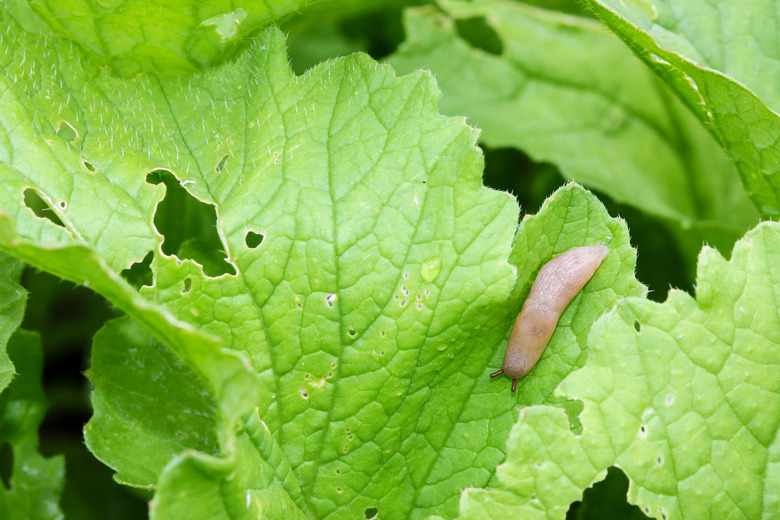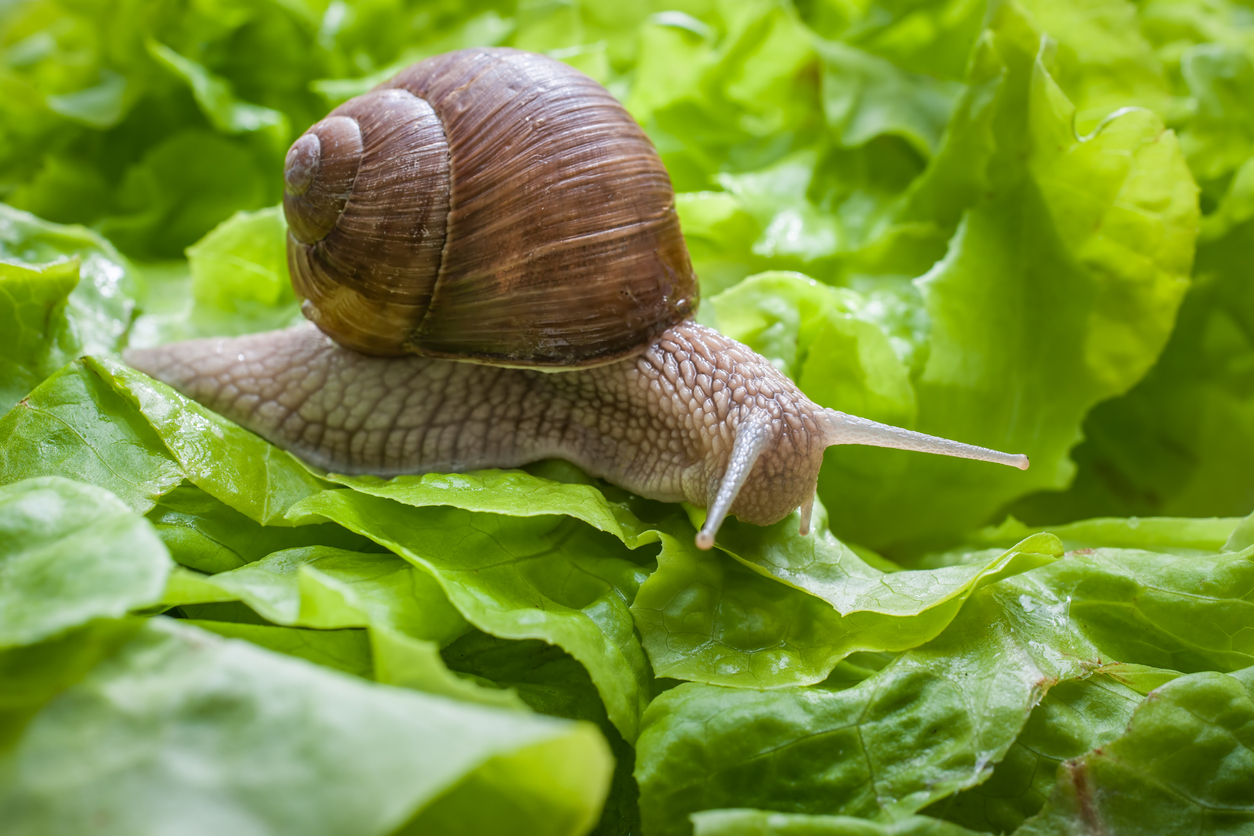Slugs On Raw Vegetables Can Make You Sick, CDC Warns
What's worse than getting sick from food poisoning? Getting food poisoning caused by a sick slug. According to the Centers for Disease Control and Prevention's Morbidity and Mortality Weekly Report, people in the United States have been contracting serious infections from inadvertently eating a parasite called rat lungworm (yes, that name is real), likely as part of a bite that was hiding an infected slug.
Rat lungworm (a name that sounds scary and gross) is a parasitic nematode (a name that sounds considerably cuter) that likes to hang out in the lungs of rats. They produce little worm larvae that are then passed in the rat's feces and eaten by slugs and snails. Delicious!
The CDC reported on 12 people who got seriously sick from slugs from 2011 to 2017. The exact causes of all the illnesses are unclear. But a human might come into contact with the parasite because slugs and snails have been known to cling to raw vegetables. Six of eleven patients reported eating raw vegetables prior to their illness. The other illnesses are suspected to have been caused by consumption of undercooked or mishandled food. Shellfish and frogs can also carry the nematode. Two patients reported eating prawns and one ate cooked crab. Two of the 12 patients reported eating raw snails before they were sick — so there's less mystery there. One teenager from Australia ate a raw slug on a dare; he's now paralyzed from rat lungworm. Don't eat slugs!
There may have been more unreported parasite cases; the symptoms of eating rat lungworm are often either nonexistent or extremely mild, the CDC explains. But in a few more serious cases, rat lungworm can cause a condition called angiostrongyliasis. This impossible-to-pronounce ailment is a brain condition, and happens when larvae of the rat lungworm make their way to the brain. It can lead to serious side effects such as meningitis (inflammation of the brain), problems with brain functioning, coma, and even death. All 12 investigated cases of rat lungworm involved this condition.
Before you freak out, take note: 12 cases in six years is very few. The CDC claims the number of cases they found was "reassuringly small." This concern pales in comparison to other food poisoning risks you might face, such as E. coli on romaine lettuce. But the CDC also notes that it's important that medical providers be prepared — and consumers take care to prevent eating secret slugs or other parasites that might be hiding in their food.
Of those who reported eating raw vegetables, three said the vegetables were picked from a private garden. Even if you grow vegetables at home, you need to be washing them thoroughly before you eat. You should also ensure that the shellfish and other food you eat is cooked all the way through before digging in. Oh, and don't eat raw slugs. But you really shouldn't need to be told that.
The Daily Meal has reached out to the CDC to hear more advice, but it's probably a good idea to follow these basic tactics for avoiding food poisoning.

